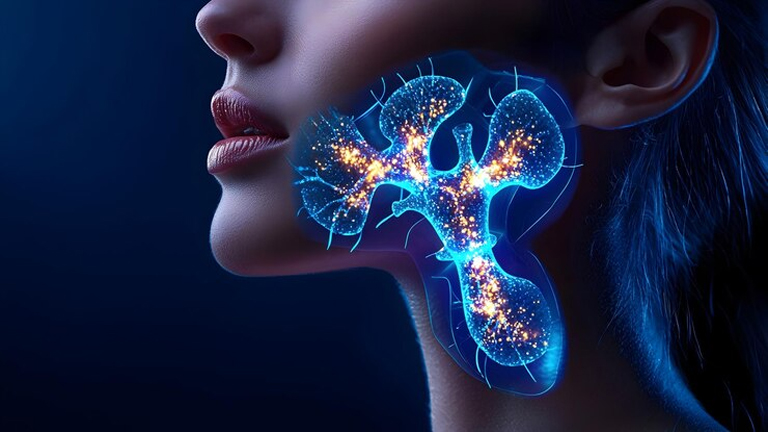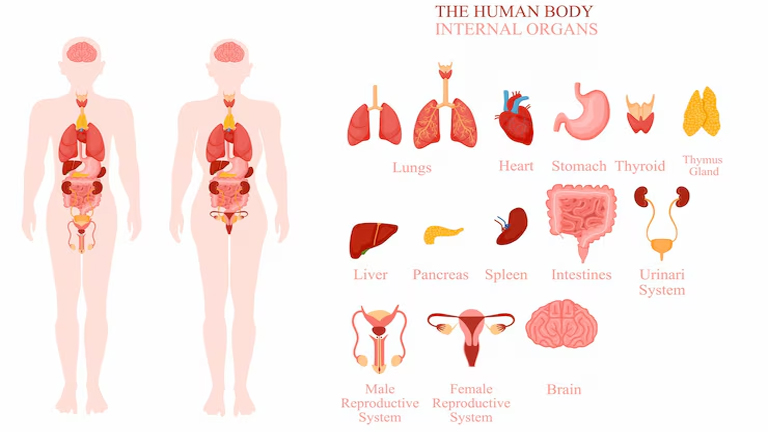The endocrine system is a complex network of glands and organs that produce and secrete hormones directly into the bloodstream. These chemical messengers regulate vital bodily functions, including metabolism, growth, reproduction, mood, and sleep. Unlike the nervous system, which uses electrical signals for rapid responses, it works more slowly but has long-lasting effects.
Understanding how the endocrine system functions is crucial for maintaining overall health. Hormonal imbalances can lead to disorders like diabetes, thyroid disease, and adrenal insufficiency. In this comprehensive guide, we’ll explore the major endocrine glands and hormones, how they work, and common endocrine system disorders.
Major Glands of the Endocrine System
The endocrine system consists of several key glands, each responsible for producing specific hormones. Below are the primary endocrine glands and their roles:
1. Pituitary Gland (The Master Gland)
Located at the base of the brain, the pituitary gland controls other endocrine glands. It secretes:
-
Growth Hormone (GH) – Regulates growth and development.
-
Prolactin – Stimulates milk production in breastfeeding women.
-
Adrenocorticotropic Hormone (ACTH) – Controls cortisol release from adrenal glands.
2. Thyroid and Parathyroid Glands
-
Thyroid Gland – Produces thyroxine (T4) and triiodothyronine (T3), which regulate metabolism.
-
Parathyroid Glands – Secrete parathyroid hormone (PTH), maintaining calcium levels.
3. Adrenal Glands
Situated above the kidneys, these glands release:
-
Cortisol – Manages stress response and metabolism.
-
Adrenaline (Epinephrine) – Triggers the “fight or flight” response.
-
Aldosterone – Regulates blood pressure and electrolyte balance.
4. Pancreas (Islets of Langerhans)
The pancreas has both endocrine and exocrine functions. Its endocrine role includes:
-
Insulin – Lowers blood sugar levels.
-
Glucagon – Raises blood sugar when needed.
5. Gonads (Ovaries & Testes)
-
Ovaries – Produce estrogen and progesterone, regulating female reproduction.
-
Testes – Secrete testosterone, influencing male traits and sperm production.
Key Hormones and Their Functions
Hormones act as chemical messengers, influencing nearly every cell in the body. Here are some critical hormones and their roles:
| Hormone | Gland | Primary Function |
|---|---|---|
| Insulin | Pancreas | Regulates blood glucose levels |
| Thyroxine (T4) | Thyroid | Controls metabolism and energy levels |
| Cortisol | Adrenal Glands | Manages stress and inflammation |
| Estrogen | Ovaries | Supports female reproductive health |
| Testosterone | Testes | Promotes muscle growth and male traits |
How the Endocrine System Works
The endocrine system maintains homeostasis (internal balance) through feedback loops:
-
Hypothalamus (brain region) detects hormonal needs.
-
Pituitary gland releases stimulating hormones.
-
Target glands (thyroid, adrenals, etc.) produce hormones.
-
Once levels are balanced, the system signals to stop production.
For example:
-
Low thyroid hormones → Pituitary releases TSH → Thyroid produces T3/T4.
-
High blood sugar → Pancreas releases insulin → Cells absorb glucose.
Endocrine System vs. Nervous System
While both systems regulate body functions, they differ in key ways:
| Feature | Endocrine System | Nervous System |
|---|---|---|
| Signal Type | Chemical (Hormones) | Electrical (Nerve impulses) |
| Speed | Slow, long-lasting effects | Fast, short-term responses |
| Control Method | Hormones travel via bloodstream | Neurons transmit signals directly |
Common Endocrine System Disorders
Hormonal imbalances can lead to various endocrine disorders:
1. Diabetes Mellitus
-
Type 1 Diabetes – Autoimmune destruction of insulin-producing cells.
-
Type 2 Diabetes – Insulin resistance due to poor diet/lifestyle.
2. Hypothyroidism & Hyperthyroidism
-
Hypothyroidism (Underactive thyroid) – Fatigue, weight gain.
-
Hyperthyroidism (Overactive thyroid) – Anxiety, rapid heartbeat.
3. Addison’s Disease & Cushing’s Syndrome
-
Addison’s Disease – Low cortisol, causing weakness and low blood pressure.
-
Cushing’s Syndrome – Excess cortisol, leading to weight gain and high blood sugar.
How to Maintain Endocrine Health
To support a healthy endocrine system, follow these tips:
✔ Eat a Balanced Diet – Prioritize whole foods, healthy fats, and fiber.
✔ Exercise Regularly – Helps regulate insulin and cortisol levels.
✔ Manage Stress – Chronic stress disrupts cortisol and adrenaline.
✔ Get Enough Sleep – Supports growth hormone and metabolic health.
✔ Avoid Endocrine Disruptors – Limit exposure to BPA, pesticides, and plastics.
FAQs About the Endocrine System
Q: What is the largest endocrine gland?
A: The thyroid gland is the largest purely endocrine gland.
Q: How does the endocrine system affect metabolism?
A: Hormones like thyroxine (T4) and insulin control energy use and storage.
Q: Can stress impact the endocrine system?
A: Yes, chronic stress raises cortisol, leading to weight gain and immune issues.
Q: What are the symptoms of hormonal imbalance?
A: Fatigue, weight changes, mood swings, and irregular periods (in women).
Conclusion
The endocrine system plays a vital role in regulating metabolism, growth, and reproduction. By understanding its glands, hormones, and functions, we can better manage our health and prevent disorders like diabetes and thyroid disease. Maintaining a healthy lifestyle, reducing stress, and avoiding toxins can help keep this system in balance.


